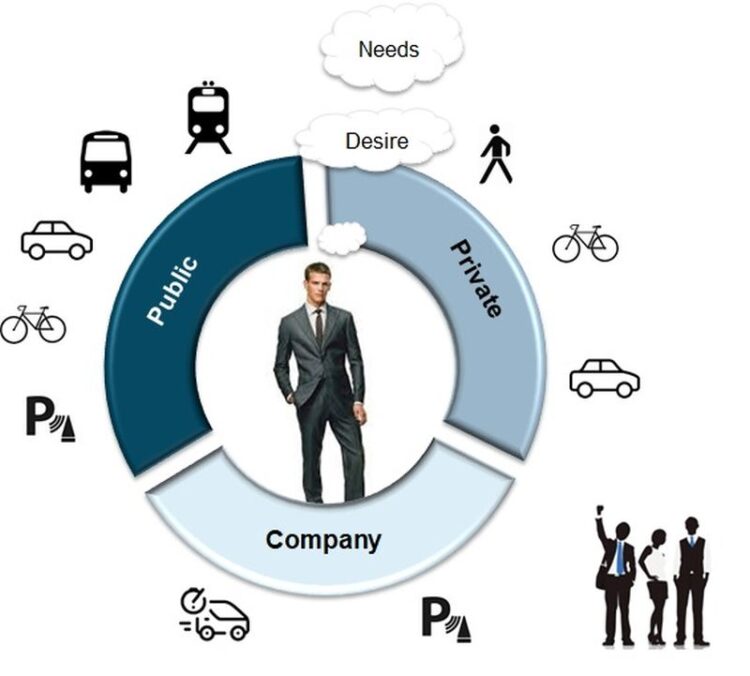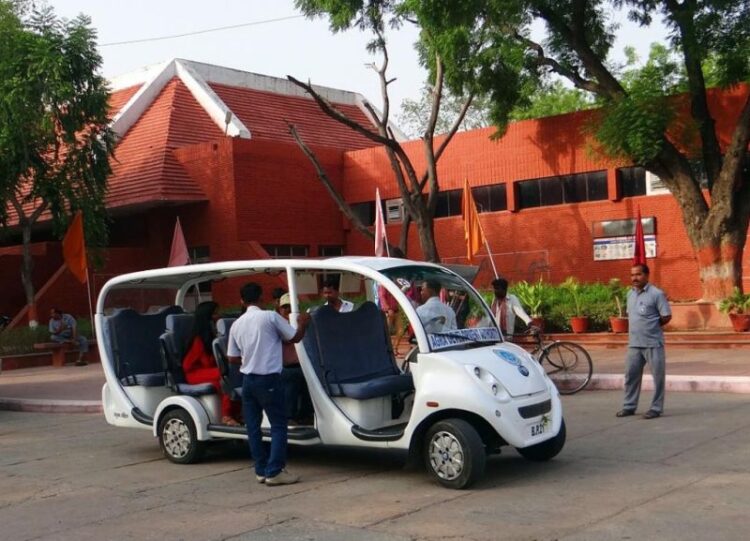The traditional automotive industry is being overtaken by the emergence of new mobility ecosystems around the world. While mobility is among the essential factors that enable a city to be an enjoyable place to visit and a cozy location to live in, many challenges face this environment and the mobility sector as a whole.
These challenges may include pollution, congestion, safety, emissions, and accessibility to means of transport. Therefore, there is an increased need for transport engineers, planners, architects, and sustainable project manager to be equipped with in-depth and specialized knowledge on how to better innovate mitigate these challenges. The emergence of a new mobility ecosystem mode of transportation will require different expertise in ensuring sustainable mobility management.
Embracing smart cities initiative in many countries around the world has paved ways to the use of green mobility. Smart city concept consists of a variety mode of transport that are tailored for environmental environment conservation while providing transport convenience and comfort.
However, the mobility systems tend require more in-depth knowledge on the various innovative approaches as compared to the traditional means. For the government to achieve sustainable mobility management, there have been many underlying approaches in the promotion and realization in sustaining areas of transport in urban locations.
Sustainable mobility consists of numerous components whose management requires some level of expertise and knowledge. These components include:
Page Contents
Mobility planning

This is a critical component that plays a part in sustainable mobility as it satisfies the underlying needs and focuses on the present and future. The introduction of electric vehicles, charging infrastructure, and facility allocations require planning to ensure that different transportation components have been allocated sufficient resources.
Fleet Management

source:wordlecious.com
With the usage of electric vessels and more variety of transport options, it is quite challenging to manage an entire fleet. Fleet management is where the pricing, service charging shared means like bikes, taxis, scooters, and buses are well monitored.
The importance of ability to professionally determine the efficiency, productivity and areas on the improvement of these assets is unnegotiable. High level of fleet management expertise for a range of or specific transport options is crucial. Besides, innovative and sustainable mobility solutions such as Motion Tag come in handy for efficient and accurate management.
Energy management

source:downtoearth.org.in
Ownership of electric vehicles goes hand in hand with the ability to charge infrastructure. Therefore, it is paramount to take a step on having sustainable low emission roads and having control and the knowledge on where to place the charging infrastructure. From the public electric vehicles to private vehicles, how the loads are balanced, real-time monitoring and response, and load reservations.
Transaction management

source:erticonetwork.com
Transaction management involves managing revenue-generating opportunities. Transport companies that are serious with sustainable mobility use mobile phone apps as payment gateways for their service or product sales. These transaction apps are effective and efficient solutions to payments, invoicing, and user profile management that turns mobility into money. They are a foundation for a fully functional sustainable mobility management system. Managing such transaction platforms requires a certain level of sustainable mobility management expertise.
Mobility services

source:erticonetwork.com
The existence of operating systems in mobility industries can be extended to include external data sources that benefit all users, including the public transits, ride-sharing options, taxi, and other services in demand on the transportation niche. In this case, transport system operators need to understand their target markets’ travel behavior to position their offerings in the best way on the market.
For instance, getting to understand travel behavior post-coronavirus will help transport service providers establish the modes of transport that will be mostly preferred by a certain group of people in particular areas. With the knowledge, they’ll be able to plan their offerings more accurately.
Where to get a formal education

source:icett.cz
Considering the complexity associated with the management of the above sustainability management components, people who desire to take part in the need to acquire relevant skills and knowledge through formal learning. On this note, there are various reputable learning institutions that one can count on for education.
One of them, and of course the most prominent, is TU Berlin, Euref Campus, which is located at the heart of Berlin in Germany. The institution offers an MBA master’s program in sustainable mobility management. The course targets students to who want to become engineers ( in the transport industry), transport and mobility experts, architects, planners, and sustainability project managers.
The context of this program covers different spheres, from economic, social, technical, and governance in the future. The Sustainability mobility management program equips learners and soon to be employees with a distinctive profile and certifies them for a prime position in this sector.
This program runs for three semesters only. In the first two semesters, the students are taught through lectures, tutorials, visiting companies, and attending seminars and excursions. During the very last semester, students are given the platform to choose one elective where their interests are. Still in this semester students write their master’s thesis.
In the course of the program, students form small groups of 30 students where they undertake practical projects related to sustainable mobility. This enables the students to have an in-depth understanding of the concepts taught and acquire hand-on work experience.
Requirement on applications of the course include:
- Tabular Curriculum Vitae with information on educational and professional background.
- Proof of work experience, preferably in the relevant areas of transport and planning at least one year after completion of studies
- Confirmation on proficiency in the English Language at Level B2 or higher of the Common European Framework of Reference for Languages (CEFR)
- A motivation letter was written in English
The lecturers of this course are experts from national universities, European authorities, and national and international companies and communities. The tuition fees for the program add up to 1500 Euros, including the average administration fee for the semester ticket for public transportation services in Berlin. Student can pay their semester fees in installments; this improves the affordability of the program.
Advantages and opportunities gained from studying this program
Each urban area has a particular set of challenges as far as mobility is concerned. These challenges include emissions, safety, accessibility of the available transport options and congestions. This creates a demand for experts in mobility planning, fleet management, energy management, transaction management and sustainable mobility service provision. These are people who are educated and adequately skilled to have the ability to formulate solutions to address the aforementioned issues, particularly using new technologies, innovative business models and social shifts.
Therefore, this means that after graduation, sustainable mobility management students have lots of job opportunities in different mobility sector entities in their countries. Some of the areas they can get jobs as a result of having the mobility management degree include transport and infrastructure services, mobility business marketing, sustainable development policy management, in private as well as public institutions.





